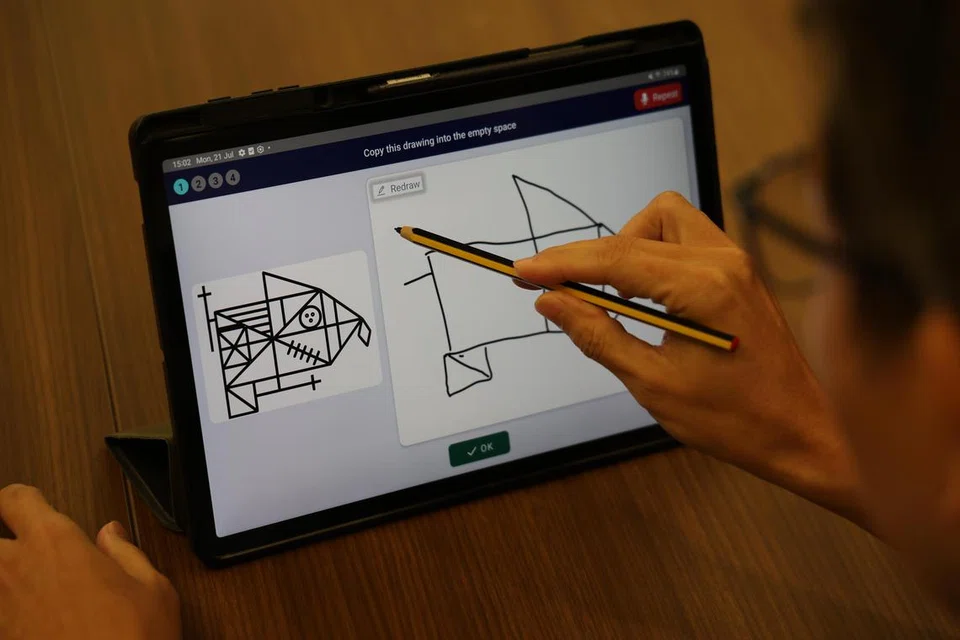Developer Offer
Try ImaginePro API with 50 Free Credits
Build and ship AI-powered visuals with Midjourney, Flux, and more — free credits refresh every month.
Singapore AI App Detects Pre Dementia In Minutes
A Revolutionary Leap in Dementia Screening
In a major healthcare advancement from Singapore, a new AI-powered application is set to change how we detect the early stages of dementia. Known as Pensieve-AI, this locally developed tool can identify seniors with pre-dementia or early memory issues in less than five minutes, boasting an impressive accuracy rate of up to 93 percent.
This innovative app, developed through a collaboration between the Singapore General Hospital (SGH) and the Government Technology Agency of Singapore (GovTech), is slated for a widespread rollout in 2026. It promises to be a faster, more accessible, and more accurate alternative to current screening methods.
How Does Pensieve-AI Work?
Moving beyond traditional methods, Pensieve-AI uses a modern, user-friendly approach. Instead of the conventional pen-and-paper tests that can take up to 30 minutes and require trained staff, seniors use a stylus to complete four simple drawing tasks on a tablet. The test, which includes drawing a clock, can be completed in just 3½ minutes with minimal assistance.
The app's sophisticated AI then analyzes these drawings, assessing various aspects of cognition and memory to detect subtle signs of pre-dementia. This digital method removes potential barriers like a patient's literacy skills, which can affect the results of older tests.
Backed by Science: The Nationwide Study
The effectiveness of Pensieve-AI isn't just a claim; it's supported by robust scientific evidence. A nationwide study involving nearly 1,800 seniors aged 65 and above was completed in September 2024. The results, published in the prestigious scientific journal Nature Communications, confirmed the app's 93 percent accuracy in detecting pre-dementia. This performance is on par with the current gold standard of detailed cognitive testing, which is far more time-consuming and resource-intensive.
Dr. Liew Tau Ming, a senior consultant at SGH's department of psychiatry, noted that the project began in June 2020, with the crucial study commencing a year later.
The Importance of Early Detection
Early detection is critical because the initial signs of cognitive decline are often subtle and easily dismissed. "Mild cognitive impairment, or more commonly referred to as pre-dementia, is often missed because it can be mistaken as part of normal ageing," explained Dr. Liew. Symptoms can include more frequent memory lapses, difficulty finding words, or trouble with daily tasks.
This is a growing concern for Singapore, which has a rapidly ageing population. Projections estimate that by 2030, about 80,000 of the nearly one million seniors in the country will be living with dementia.
A Personal Story: The Impact on Families
The true value of this technology is best seen through the lives it touches. Madam Tan Yew Tee, 84, was diagnosed with early dementia after participating in the Pensieve-AI study. Her daughter and caregiver, Nancy Hoon, 59, shared how the diagnosis brought clarity and understanding.
"I would have thought she was getting older and her forgetfulness and memory lapse were all part of ageing," Ms. Hoon said, recalling how her mother would repeatedly ask the same questions. "It was only after I found out that she has early dementia that I became more understanding towards her."
Following the diagnosis, Madam Tan became more engaged in social activities, which has seemingly helped slow the condition's progression and improved her happiness.
Looking Ahead: The Future of Pensieve-AI
With its planned rollout in 2026, Pensieve-AI is poised to become a key tool in community health. It will likely be available on tablets at community sites like active ageing centres. To ensure the integrity of the test, the app will not be available for download on personal smartphones, which prevents users from learning the drawing tasks by rote.
Compare Plans & Pricing
Find the plan that matches your workload and unlock full access to ImaginePro.
| Plan | Price | Highlights |
|---|---|---|
| Standard | $8 / month |
|
| Premium | $20 / month |
|
Need custom terms? Talk to us to tailor credits, rate limits, or deployment options.
View All Pricing Details

